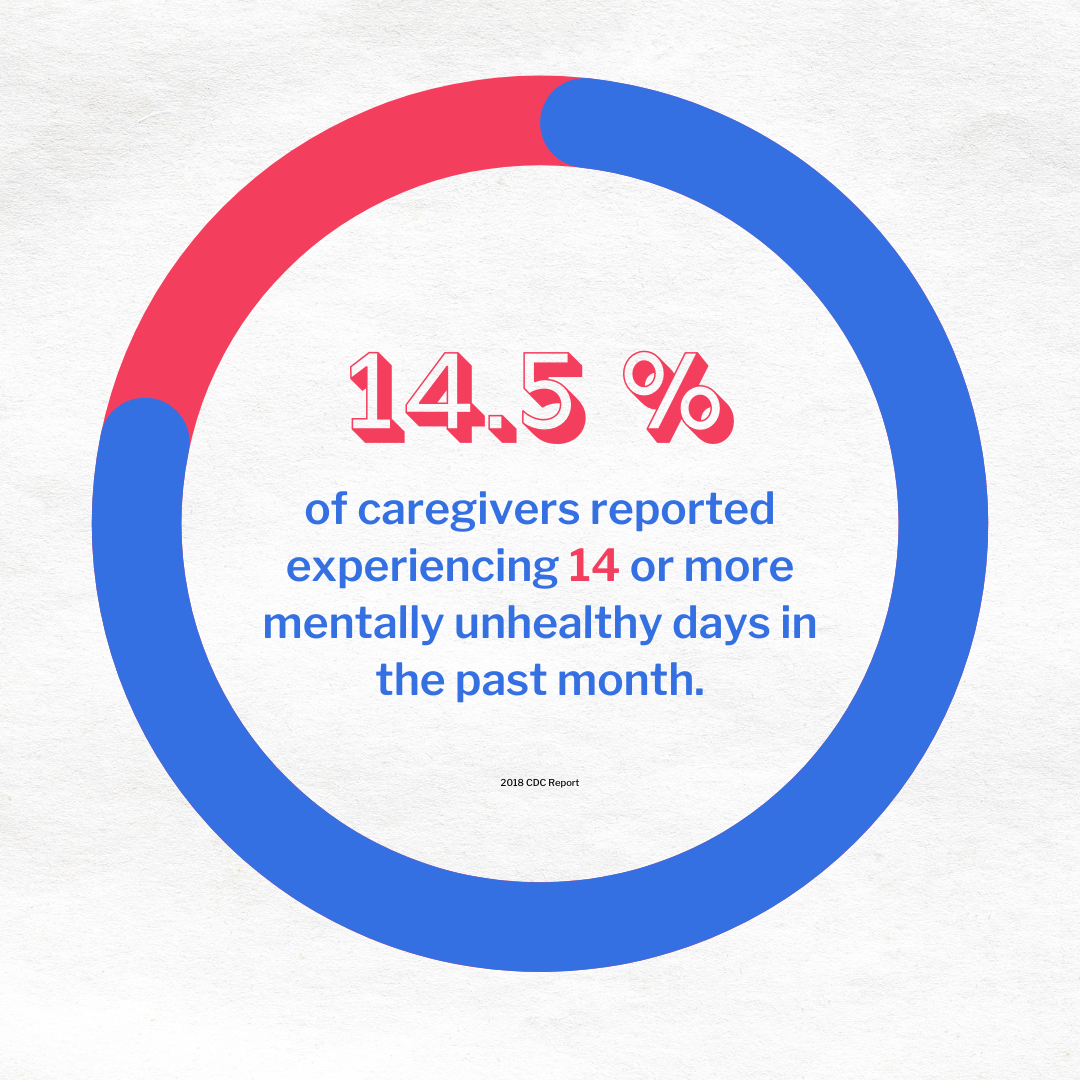Blog
Stop ignoring caregiver burnout
When taking care of a loved one begins to make you feel empty, frustrated, and tired — you need help. Here are 4 signs of caregiver burnout you can no longer pretend don’t exist.

You love your dad more than anything, that will never change, especially since he was diagnosed with dementia a few years ago. Initially, the responsibilities seemed manageable, but lately, taking care of him makes you feel overwhelmed, stressed, exhausted, and lonelier than ever. It feels like you’re at the end of the road.
If this is you, then you are already experiencing caregiver burnout.
What is caregiver burnout?
Scientifically referred to as ‘Burnout Syndrome,’ caregiver burnout feels like intense emotional exhaustion, paired with crippling guilt. The caregiving responsibilities and day-to-day stress begin to take a heavy toll on you. You start living in a perpetual state of anxiety and fatigue. And if you invalidate or neglect your stress, it sometimes starts showing up as guilt.

How does caregiver burnout begin?
Initially, when you start caring for a friend or family member, it feels pleasant, strengthens your relationship, and the entire process seems relatively rewarding. It adds a new layer of appreciation and to your connection with your loved one. But the emotional and physical stress of constantly taking care of someone is endless. It completely overshadows the joy of being there for someone you care about. Most cases show that caregiver burnout leads to feelings of resentment, apathy, and even anger.
According to a study by the Centre for Disease Control and Prevention, 14.5% of caregivers reported experiencing 14 or more emotionally challenging days in the last 30 days of caregiving for a loved one.
.png)
As a caregiver, you put yourself in an all-consuming role — from cooking for your spouse, cleaning for him, helping him with laundry, changing his bedding, taking him to medical appointments, getting him enough exercise, and accompanying him to social events. While in the short-term, this seems like a reasonable solution, its long-term results are excruciating.

Signs of Caregiver Burnout
Emotional stress
If your spouse is suffering from Parkinson's, or your mother is a cancer patient, it is the hardest thing in the world for you to watch them suffer. You know the sheer difficulty and unfairness of circumstances and are doing everything you can. But have you taken a second to sit back and realize its impact on your life?
When you’re experiencing burnout, every day feels like lifting a heavy boulder uphill with sore feet, scraped ankles, and a screeching lack of energy. The challenge simply never gets easier. You feel lonely, irritated, doomed, and frustrated — all at once. It is a viscous sense of helplessness that surrounds you throughout the day.
Deteriorating health:
Caregiver burnout makes you more susceptible to anxiety and depression, and also clinically manifests itself as poor health and a weak immune system. You might be experiencing:
- Insomnia
- Headaches
- Sudden weight gain or loss
- Problems with memory
- High blood pressure
- Poor eating patterns

Lack of purpose, passion, or focus, outside of caregiving
Caregiver burnout isolates you from things you normally enjoy and saps the joy out of them. Suddenly, calling your best friend seems like a task. Watching your favorite show on Netflix becomes a headache. You dread the idea of going on a date and frown at your pet when she wants to play with you. Your goals for the day begin and end with caregiving for your parent. It tires you and drains you, but it feels like there’s nothing you can do about it.

Absolutely NO time for other life priorities
When was the last time you loudly appreciated the subtle crimson shade of the evening sun? Or read a book on your couch with a cup of hot chocolate? Caregiver burnout is often recognized at a much later stage, where you slowly realize that you have no space for any other activity than caregiving. At this moment, the staggering loss of joy, peace, and balance is felt deeply.
Get a non-medical companion
It's not too late! You can prevent caregiver burnout and refocus on your life by hiring a dependable non-medical caregiver for your family member. Our awesome staff at Best Life Caregivers is trained to provide emotional support and physical help to your aging mother so she can be stress-free even in your absence. This way, you can lead your life with independence without the constant anxiety of caregiving.
We provide hourly as well as live-in non-medical homecare services. Contact us today!
Get the help and care you need
Sign up to receive caregiver advice and support articles
We care about the protection of your data. Read our Privacy Policy.
